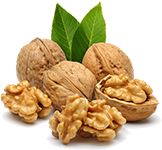
- Famous Brand Promotion:
 010-63457516
010-63457516 -

 Favorites
Favorites

 010-63457516
010-63457516
 Favorites
Favorites
Nutritive value of sunflower seeds
Sunflower seeds are rich in fat (mainly unsaturated fatty acid), proteinand carbon hydrate, which are far more than that in eggs, meat and dairy. Moreover,sunflower seeds also contain organic acid, Vitamin A, B1, B2, B6, E, folicacid, pantothenic acid, inorganic element, Ca, Fe, K, Zn and Se.
Advantages of sunflower seeds
Body building: the sunflower seeds can build body; the body buildingeffect is obvious due to its abundant contents of microelements such asunsaturated fatty acid;
Anemia prevention: the sunflower seeds can prevent from anemia due to itsrich content of Fe, Zn and Mn;
Cholesterol reduction: the unsaturated fatty acid in sunflower seeds havethe function of cholesterol reduction, so as to prevent and treat arteriosclerosis,hypertension and coronary heart disease;
Cell aging prevention: the sunflower seeds have the function ofanti-aging. The Vitamin B1 and E can stabilize emotion, prevent cell aging andactively prevent adult diseases;
Treatment ofinsomnia: sunflower seeds can treat insomnia; eating sunflower seeds frequentlycan help improve memory, regulate brain cell metabolic, and improve restrictionfunction. Therefore, it is the best food to treat insomnia;
Beatifying and wrinkle removing: sunflower seeds can beautify skin andremove wrinkles; sunflower seeds are rich in Zn, which can make skin smooth andextend wrinkle formation; Vitamin E can make skin soft and white; so femalescan be more beautiful by eating sunflower seeds frequently.
Diseasetreatment: sunflower seeds have obvious curative effect for cancer,hypertension, heart disease and iron deficiency anemia. Moreover, sunflowerseeds can be used as aid therapy for depression, neurasthenia, insomnia andvarious psychogenic diseases, and can improve memory. Thus, sunflower seeds arefavorable health care products.